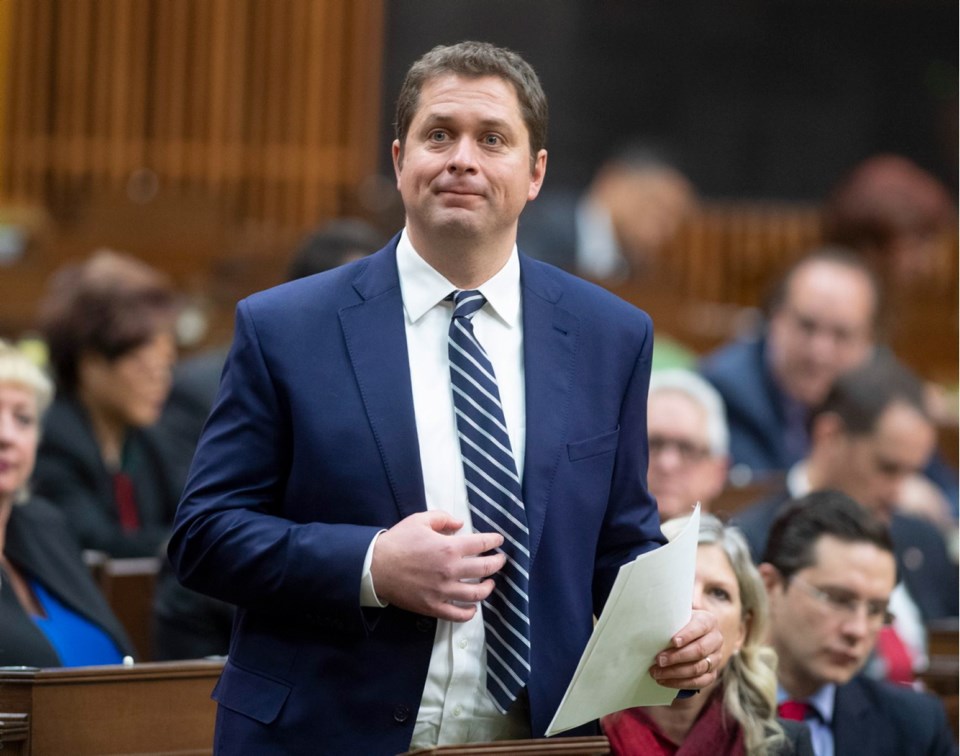Andrew Scheer announced his departure as Conservative leader on the eve of a significant political anniversary in Canada. Forty years ago, on Dec. 13, 1979, the Conservative minority government of Joe Clark fell, setting in motion a chain of events that would transform the two big political parties in Canada for decades to come.
Scheer’s decision could very well put the Conservatives and the Liberals at a similar crossroads in history.
Much rests now, as it did 40 years ago, on who the Conservatives pick as the next leader, and whether this development, at least in the short term, turns out to be good news for Justin Trudeau — as Clark’s defeat was for his father, Pierre Trudeau, in 1979.
The Joe Clark parallels have come up a lot in Scheer’s relatively short reign as Conservative leader. A largely unknown politician from the West, an unlikely competitor against a charismatic Trudeau, the Toronto Star marked Scheer’s 2017 leadership victory with the headline “Andrew Who?,” just as it gave Clark the “Joe Who” nickname that endured throughout his ill-fated years as leader.
Scheer didn’t even get the short run as prime minister that Clark did, but he came tantalizingly close, and politics can be even more unforgiving for leaders who almost make it. Scheer was probably never going to be allowed to get past his inability to defeat Justin Trudeau in this year’s election, just as Clark was never quite forgiven for letting the power slip from his hands on a cold December night in 1979. When Clark’s minority government fell, Pierre Trudeau was lured out of retirement and romped back to power in 1980 for a final, four-year mandate that put his indelible stamp on Canadian history — notably a new Constitution and a Charter of Rights and Freedoms.
Without that final four years in power, it has been argued, Trudeau’s legacy would have been more of the footnote variety — a prime minister who blazed briefly, if meteorically, across the 1970s with a handful of small achievements and checkered controversies to his credit.
Contemporary Conservatives still dream of that kind of fate for the Trudeau who is now in power. They will be looking for a leader who can dispatch Pierre Trudeau’s son, after a swift ascent and brief but bumpy rule, into political retirement — a permanent one.
Liberals, however, will be looking for a different kind of history repeating itself. It took Clark’s party four years to get its act together after the 1979 defeat, and only after Brian Mulroney came along to create a whole new governing coalition across Canada, turning long-time Liberal bastions like Quebec into Conservative strongholds.
Justin Trudeau and his Liberals would be totally fine with having another four years in power, perhaps to do some nation-changing kind of things that happened in the early 1980s — new national programs (pharmacare, for instance?) or, if they’re really ambitious, a national-unity adventure like the constitutional saga of Pierre Trudeau’s last mandate. (Though presumably Justin Trudeau doesn’t want to replicate some of the disunity that also arose from those years, notably in Quebec and the West.)
Regardless of what exactly Trudeau and the Liberals do now that Scheer’s gone, the point is that an opening has been created for them to govern for a while longer than they might have hoped, especially immediately after being reduced to a minority two months ago.
While the Conservatives are regrouping, an opportunity exists, as it did for Liberals in 1979, to dream of doing bigger things in power, or even returning with a majority, as they did in 1980.
Conservatives, though, will have their eyes on the same prize. When Clark was ultimately turfed as leader in 1983, the party managed to paint the country Tory blue in the 1984 election, even in Quebec, even in Liberal heartlands of Ontario. Mulroney’s majority victory of 1984 was the largest in Canadian history.
Scheer’s replacement, whoever that is, has to hold out the same promise to this generation of Conservatives who, like the Tories in 1979, are frustrated at letting power slip from their grasp. “We should have won” is a common refrain in today’s, now Scheer-less Conservative party, as surely as “we shouldn’t have lost” was the lament of Clark’s 1979 defeat.
Clark, in the longer lens of history, has now acquired the stature of a statesman, remembered for his work in the Mulroney government as minister of foreign affairs, constitutional minister, and, again briefly, a return engagement as Conservative party leader from 1998 to 2003.
Scheer probably isn’t envisioning that kind of future for himself, at least right now, but the good news is that some day he may be remembered for more than being the Conservative leader who didn’t quite defeat Trudeau.
Susan Delacourt is a columnist for the Toronto Star.



